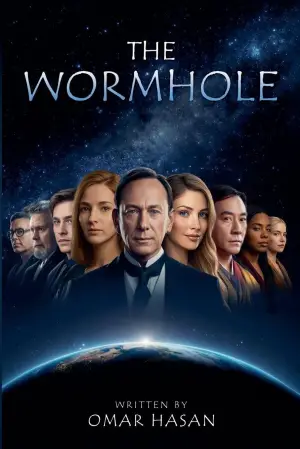As a passionate reader with an insatiable curiosity, I was immediately drawn to Orbital by Samantha Harvey, especially after its accolade as the winner of the 2024 Booker Prize. The premise of the novel—a meditation on life aboard a space station through the perspectives of six astronauts—intrigued me. I find the exploration of human experiences in extreme environments to be an endlessly fascinating theme, and I anticipated a deeper look into both humanity and the vastness of space.
At its core, Orbital is a beautifully crafted piece that challenges the norms of narrative-driven fiction. The story unfolds over a mere twenty-four hours as the characters traverse the vastness of space in orbit around Earth at 17,000 miles per hour. Harvey’s prose is undeniably poetic, breathing life into the astronauts’ mundane tasks—whipping up dehydrated meals and exercising in a gravity-free environment. The moments of solitude paired with the vastness of space create an evocative sense of wonder, reminiscent of what reviewer Austin C. Beeman referred to as a “sense of wonder” that encapsulates the reader’s imagination.
One aspect I particularly appreciated was how the narrative allowed us to glimpse snippets of the astronauts’ lives on Earth through brief, emotive communications. These moments resonated deeply, portraying the weight of human emotion even when encapsulated in the isolating vacuum of space. The depiction of a crew member grieving a family loss while performing scientific experiments struck a chord with me. It reminded me of the delicate balance between one’s personal life and professional duties, especially in extraordinary circumstances.
However, the novel is not without its drawbacks. Many readers, including Jason Adams, noted that it could feel like it was “about nothing.” The plot is intentionally sparse, focusing more on the introspective experiences of the astronauts than on a conventional storyline. While some may find this approach enthralling, others may feel a sense of ambiguity and incompleteness, which can make the pacing feel slow and the conclusion abrupt.
Despite its contemplative nature, certain readers found the prose overwhelming. Harriet White aptly described it as a “word orgy,” emphasizing how the lush descriptions can sometimes obscure the clarity of the narrative. I had my moments of feeling lost in the lyrical flow, where I craved a more straightforward thread to guide me through the astronauts’ emotional journeys.
Ultimately, Orbital stands as a moving elegy to our Earth and humanity’s place within the cosmos. Harvey’s exploration of environmental themes and human connection in the face of solitude is thought-provoking and necessary, especially as the novel reflects pressing current topics such as climate change and global crises.
I was genuinely impressed with how Harvey managed to infuse depth into the astronauts’ experiences, making their shared isolation palpable. This slender novel has a surprising weight, offering reflections on life, connection, and introspection that stayed with me long after I turned the final page.
In conclusion, while Orbital may not cater to every reader’s expectations of a conventional narrative, it is undoubtedly a compelling exploration of the human condition within an extraordinary setting. I would recommend it to those who appreciate a meditative, reflective reading experience that delves into the complexities of life, love, and loss, all set against the breathtaking backdrop of space. It certainly met my expectations, earning a solid four stars for its stunning prose and thought-provoking themes, while acknowledging that its unconventional approach might not resonate with everyone.








